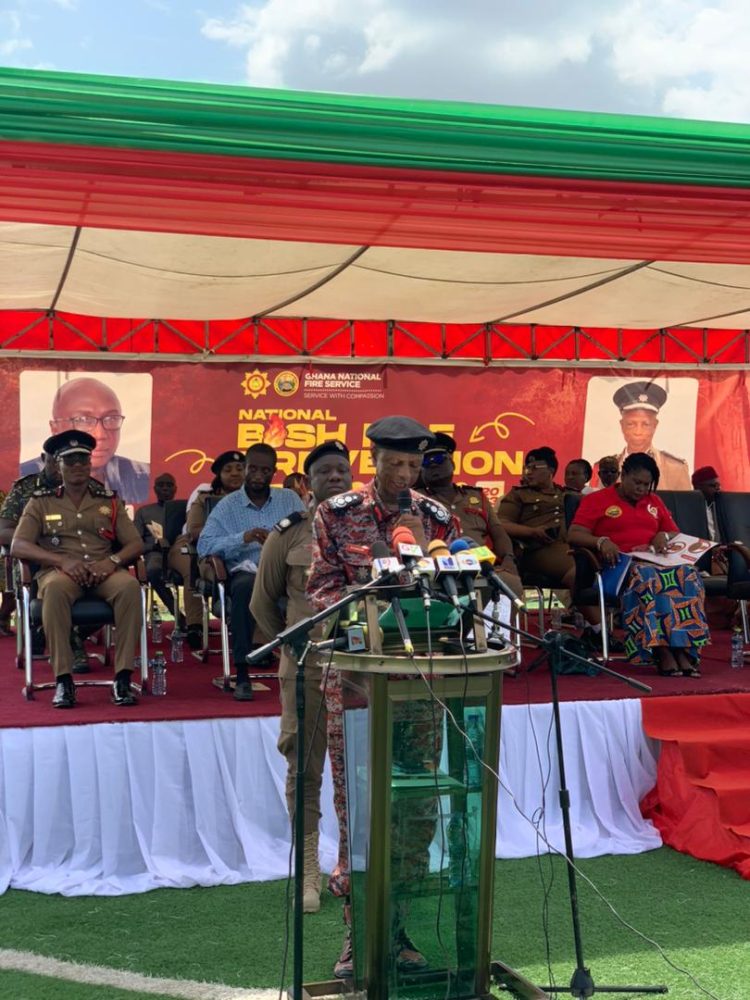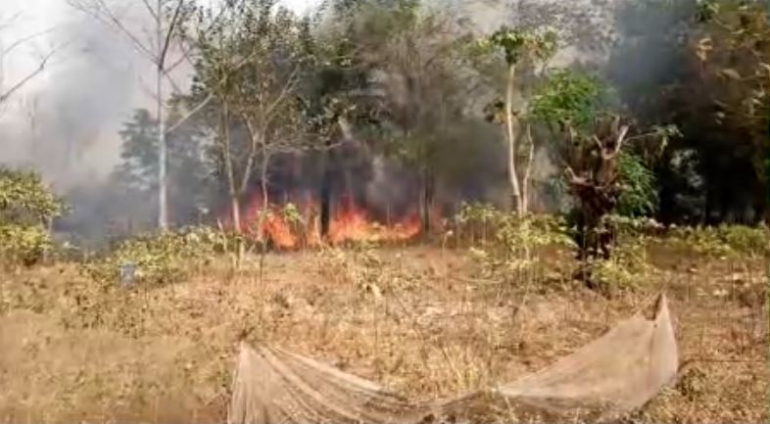
Audio By Carbonatix
The Ghana National Fire Service (GNFS) has launched a National Bush-fire Prevention campaign with the assurance by the government to protect the country's natural landscape from the destructive forces of bush-fires.
The Director of Finance and Administration at the Interior Ministry, Doreen Payin Annan who read a speech on behalf of the Interior Minister, Ambrose Dery called for collaborative efforts to continuously reduce bush-fires while calling for the enforcement of the Control and Prevention of Bush-fires Act – 1990 (PNDCL 229).
"The government, on its part, is not sparing any effort to protect our natural landscape from the destructive forces of bush-fires. The protection of our environment, our communities, and the safety of our citizens is our solemn duty.”

"I will further urge the Ghana National Fire Service to give life to the Control and Prevention of Bush-fires Act-1990 (PNDCL 229). Defaulters of this law do not have any more excuses after 33 years of sensitisation and education for which they cannot be held responsible for their actions if they go contrary to the law,'' she said.
The Chief Fire Officer, Julius Aalebkure Kuunuor said the service recorded a reduction of bush-fires by 27.5 per cent for the 10-month period of the year 2023.
In spite of this progress, according to him, over 75,000 hectares of vegetation and forest cover across the country were destroyed through bush-fires annually.

"The loss of vegetation according to the Service contributes to a three percent loss to the country's gross domestic product.
However, this year, a significant reduction of 218 representing 27.5 percent has been recorded for the first three quarters.
From January to October 2023, 583 bush-fires were recorded as against 791 for the same 10-month period in 2022," he revealed.
He explained that 60 percent of the country's population relied on agriculture, adding that disruption to the sector can have severe implications for the economy.

“Bush-fires pose a significant threat to our environment, destroying vast areas of vegetation, wildlife habitats, and farmlands. The consequences of these are far-reaching, affecting not only natural resources but also our food security.
"Ghana relies heavily on agriculture, as 60 percent of the population is involved in it. Any disruption has severe implications on the economy and well-being of our people,” he stated.
Latest Stories
-
Bus returning from 31st night prayer kills 2, injures dozens at Assin Dansame
2 minutes -
Political parties must stay out of local governance – Andrew Bediako
2 minutes -
Beyond Witchcraft: Why preparation, not spiritual fear, determines success
3 minutes -
Margaret Korme Tetteh
41 minutes -
Sammy Gyamfi’s work at Goldbod in few months would take someone five years – Ato Forson
57 minutes -
From Accra to Wuzhen: The Ghanaian schoolgirls making their mark in global AI
58 minutes -
Ghana must prioritise value addition to sustain IMF gains – Prof Asuming
1 hour -
Man allegedly poisons his incoming girlfriend over GH₵100 at Buduburam
1 hour -
Jennifer Frimpong: Ghana’s health system faces funding shock, urgent reforms needed
1 hour -
Tighter cocoa supply lifts prices as Ghana records good crop conditions
2 hours -
KAAF University donates to Widows, urges Public to end Discrimination against Elderly Widows
2 hours -
NAIMOS task force disrupts illegal mining operations along Ankobra River
2 hours -
President’s New Year message lacked hope and sincerity – NPP’s Senyo Amekplenu
3 hours -
Ebo Noah remanded pending psychiatric exam, to reappear on January 15
3 hours -
Our public university system is falling down
3 hours

